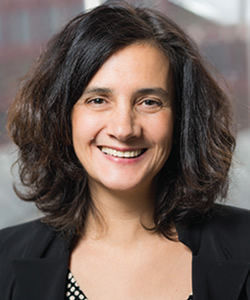 AND THE WINNER IS ...
AND THE WINNER IS ...
If there was a prize for new records in the renewables sector, 2018 would have seen many winners already.
Let's start with the category "costs". Under the amazed eyes of citizens and experts, prices for solar and offshore wind projects continue to fall around the globe. Moreover, project developers combine renewable generation with storage capabilities more and more often, thus increasing their flexibility and role in balancing the system. Secondly, it is worth to take a look at the growing abilities grid operators are showing in managing the grid with higher shares of renewables. At the beginning of January, Germany was running on almost 100% renewables for hours for the first time ever. In April, the British grid ran without any power from coal plants for three whole days. California received half its energy demand from solar energy in March this year, to name a few. Who would have thought that this could be possible?
However, do these records actually help us in progressing with the energy transition? I think they do. Grid operators are on a fast learning journey. They demonstrate regularly that they can safely operate a system with very high shares of variable renewables. Since grid operators are tasked with maintaining security of supply, their experience with integrating renewables gives confidence to policymakers across the globe to aim for more ambitious targets.
NEW CHAMPIONS WANTED
While, in general, the transformation of our power system is on a good path, there is still a long way to go. In this next phase, we will need new champions that have the courage to branch out. I personally would like to see some more of the following kind:
- The most courageous activist:
Civil society plays a fundamental role in building bridges between politics and citizens as well as our societal needs and the need for sustainability. Grids are often contested and many believe that a decentralised energy generation can remove the need for transmission power lines. While we may discover new solutions for renewables integration sometime in the future, today grids are needed to sustain the growth of renewables. The next ten years are critical if we want to limit climate change. This requires courage to explain and defend choices for necessary new grid infrastructure. The most courageous activist would push for freedom and flexibility - knowing that, if one day in 30-50 years from now we have found out that there are new options for grid integration, we can always recycle the grid we have built today.
- The most innovative regulator:
Regulators shape the framework in which transformation happens. One of their tasks is to keep costs as low as possible for consumers; this is important to maintain support for the energy transformation. However, to manage ongoing changes and uncertainties, the energy sector needs the flexibility to experiment and learn while doing. I hope that regulators will find the right balance between these two aspects and encourage innovation also within the regulated business.
- A new record in embracing Europe:
Anti-European movements are emerging everywhere across Europe. However, Europe is not the end of our national identities, but rather a vehicle to be more than a vulnerable little country in the middle of a global system. I would like to see a European Union which is stronger and fairer for the benefit of all European citizens and not just a few. The application of the solidarity principle and European energy security decisions will make the energy transition easier and more affordable, which will largely contribute to fighting climate change - which we all know does not stop at national borders.
- The best dialogue convener:
The transformation of the energy sector will involve almost everyone. Whether you become a prosumer by complementing your solar panels with battery storage, your electric car and smart devices, or you see changes in the landscape with more wind farms and power lines instead of big coal and nuclear power plants, the impact on society is manifold. Therefore, we need to facilitate discussions, debate alternative options, explore the value of different views and together find solutions that are understood by all parties involved.
- The best failure:
Imagine you are packing for a long trekking journey. You are well prepared, but uncertainties remain high. To mitigate potential surprises you need to add flexibility by packing some extra stuff, but not too much because you have to carry it anyway. Similarly, the energy transition requires new ideas and innovations. We do not know today which ones will succeed. Nevertheless, it is essential that we build a culture which allows experimenting and does not demonise failure. Failure is one of the greatest learning opportunities.
HONOURING THOSE WHO DARE TO TRY SOMETHING NEW
The Renewables Grid Initiative supports frontrunners by creating opportunities for knowledge sharing and the identification and dissemination of best practices. The ‘Good Practice of the Year’ award honours those who try out new approaches when developing a grid that is fit for the future. Three winners have been awarded just in May, more information about their practices are on our website. Moreover, we contribute to planning for the future by co-creating together with environmental NGOs and ENTSO-E a scenario for their Ten-Year Network Development Plan, which is compliant with the goals of the Paris Agreement.
The Renewables Grid Initiative is a unique collaboration of environmental NGOs and transmission system operators from across Europe which promotes transparent, environmentally sensitive grid development to enable the further steady growth of renewable energy and the energy transition.
Contact information
Antonella Battaglini CEO Renewables Grid Initiative
Email: info@renewables-grid.eu
Website: www.renewables-grid.eu